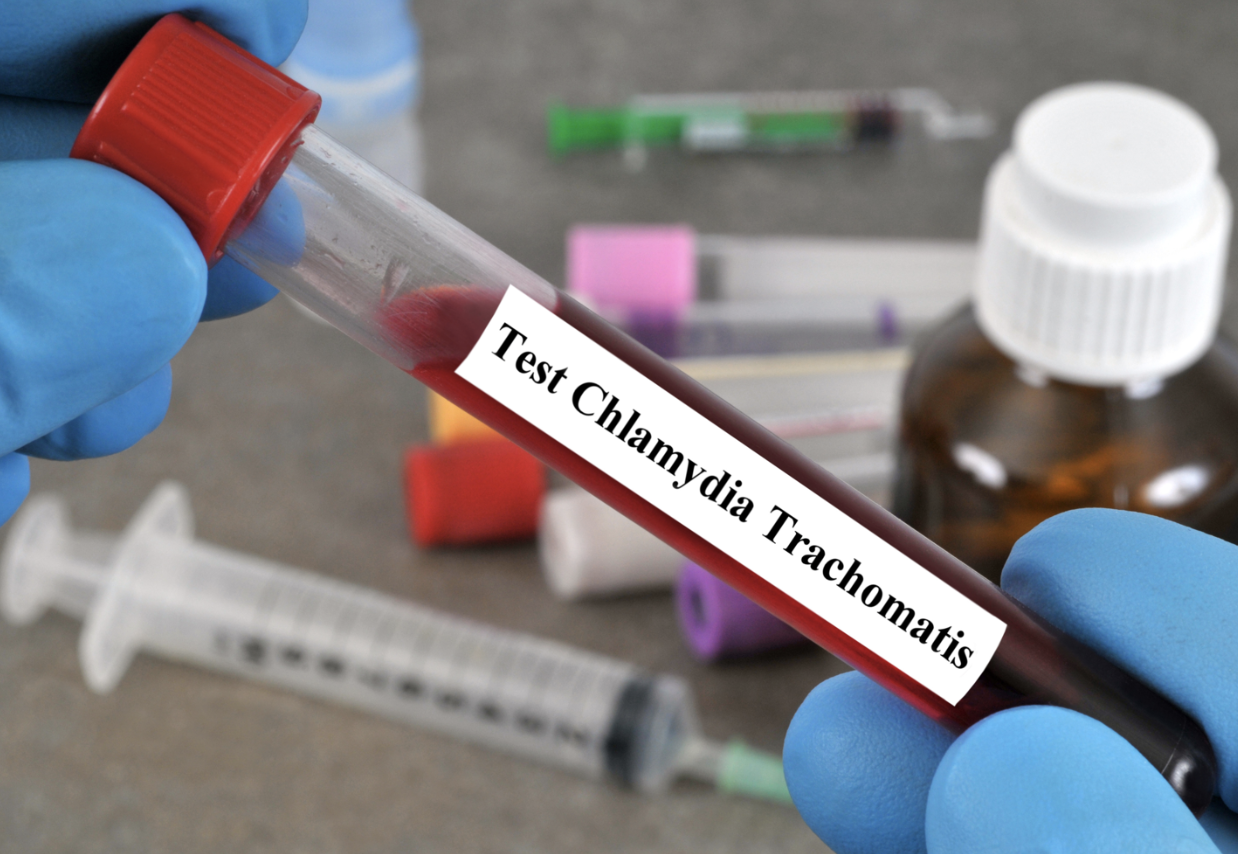Debunking the Top 3 Myths About Chlamydia

In the realm of sexually transmitted infections (STIs), Chlamydia often flies under the radar, overshadowed by more notorious diseases like HIV and syphilis. However, this silent epidemic is a significant public health concern, with millions of cases reported worldwide yearly.
Chlamydia is a bacterial infection caused by the Chlamydia trachomatis bacterium. It primarily affects the genital and urinary tracts, although it can also infect the throat and rectum in some cases.
Chlamydia is transmitted mainly through sexual contact, including vaginal, anal, and oral sex, making it one of the most common sexually transmitted infections. Fortunately, Chlamydia is a treatable infection, and early detection and treatment can prevent complications and reduce the risk of transmission.
Despite Chlamydia’s prevalence, misconceptions and myths surrounding this infection persist, leading to misunderstandings and potentially harmful consequences. This article will debunk the Top 3 myths about Chlamydia and shed light on effective treatment options. Our goal: help you better understand, address, and conquer this stealthy foe.
Myth 1: “Chlamydia Only Affects Women”

One of the most prevalent myths about Chlamydia is that it only affects women. In reality, Chlamydia can infect both men and women, and anyone engaging in sexual activity is at risk. However, it is essential to recognize that the infection can have different consequences for each gender.
One of the most common signs of Chlamydia in women is an unusual vaginal discharge, which may be accompanied by an increased frequency of urination. Some women with Chlamydia may also experience a burning sensation or pain when urinating due to inflammation in the urinary tract.
Chlamydia can cause lower abdominal pain or discomfort during sexual intercourse. Other possible symptoms are irregular bleeding between menstrual periods or rectal pain, bleeding, or discharge.
For women, untreated Chlamydia can lead to serious health complications, including pelvic inflammatory disease (PID), resulting in chronic pelvic pain, ectopic pregnancy, and infertility. Moreover, pregnant women with Chlamydia can pass the infection to their newborns during childbirth, potentially causing eye and lung infections in the baby.
Men with Chlamydia may experience urethral discharge, which can vary in color from clear to cloudy or yellowish. This discharge may be accompanied by a burning or painful sensation during urination, making it uncomfortable for affected individuals. Chlamydia can also affect the rectum when transmitted through anal intercourse. Men engaging in receptive anal sex may experience rectal pain, discomfort, or bleeding symptoms.
Although the symptoms in men are often milder and less noticeable than in women, untreated Chlamydia can lead to complications such as epididymitis (inflammation of the testicles) and prostatitis (inflammation of the prostate gland). Additionally, Chlamydia can increase the risk of transmitting or acquiring other STIs, including HIV.
It’s important to remember that Chlamydia is frequently asymptomatic, meaning some individuals may not experience any noticeable symptoms. However, even with no symptoms, Chlamydia can still cause long-term health problems if left untreated, such as infertility or complications during pregnancy.
Myth 2: “Chlamydia Is Rare and Doesn’t Affect Many People”

This myth is far from the truth. Chlamydia is among the most common STIs globally, especially among sexually active young adults and adolescents. The Centers for Disease Control and Prevention (CDC) in the United States reports that Chlamydia is the country’s most frequently reported bacterial STI, with over 1.5 million cases reported in 2019 alone.
The high prevalence of Chlamydia underscores the importance of regular STI testing, especially for individuals who are sexually active or engage in high-risk behaviors. Many people with Chlamydia do not experience symptoms, making it easy for the infection to go unnoticed and untreated. Regular testing and safe sexual practices are essential in preventing the spread of Chlamydia and reducing its impact on public health.
Myth 3: “Chlamydia Will Go Away on Its Own”

Some individuals believe that Chlamydia will resolve on its own without the need for medical intervention. This is a dangerous myth that can lead to severe health consequences and the spread of the infection to others.
Chlamydia is a bacterial infection, and unlike some viral infections, it does not typically resolve without treatment. If left untreated, Chlamydia can persist in the body, leading to complications in both men and women.
The standard treatment for Chlamydia involves a course of antibiotics, most commonly azithromycin or doxycycline. These antibiotics are highly effective at clearing the infection when taken as prescribed by a healthcare provider. It is essential to complete the entire course of antibiotics, even if symptoms improve, before finishing the medication. Failure to do so may result in the infection persisting or becoming antibiotic-resistant.
It is also crucial for sexual partners to be treated simultaneously to prevent reinfection. Individuals diagnosed with Chlamydia should inform their sexual partners so that they can also get tested and treated. Abstaining from sexual activity until both partners have completed their treatment is advised to prevent reinfection.
Testing, Treating, and Managing Chlamydia

Chlamydia is a prevalent and easily transmissible sexually transmitted infection that can affect both men and women. Dispelling the myths surrounding Chlamydia is essential to promote accurate understanding, encourage regular testing, and ensure timely treatment.
If you suspect you have Chlamydia or have been exposed to someone with the infection, it’s essential to get tested. If you prefer testing from the privacy and comfort of your home, consider using 247Labkit’scBasic Kit: Chlamydia & Gonorrhea At-Home Test.
At 247Labkit, you can obtain tests and results at your leisure via a secure online portal, guaranteeing both convenience and confidentiality. Using the test is straightforward; you simply mail in your urine sample. Qualified experts will then examine and assess all submitted samples, and your test results will be sent to you via email within three to four days.
If you test positive, Chlamydia is typically treated with antibiotics prescribed by a healthcare provider, and it’s crucial to complete the entire course of antibiotics as directed, even if symptoms improve. Additionally, practicing safe sex, including using condoms, can help prevent the transmission of Chlamydia and other STIs.
Education and awareness are essential in the fight against Chlamydia. Knowing the facts, getting tested regularly, and practicing safe sex are vital steps individuals can take to protect their sexual health and that of their partners. By debunking these Top 3 myths about Chlamydia, we can work towards a healthier and more informed society in sexual health.







Comments are closed